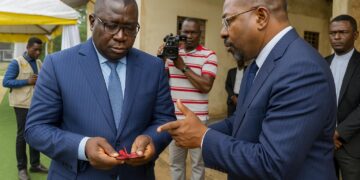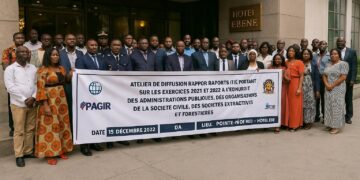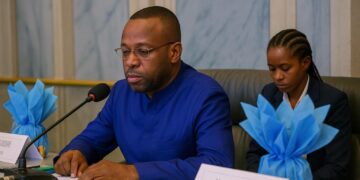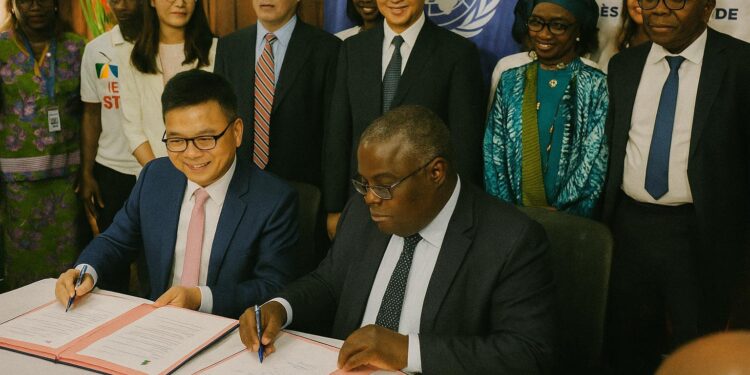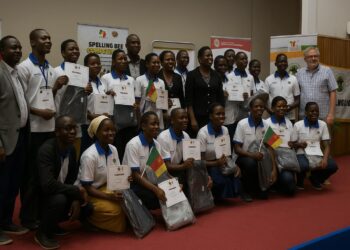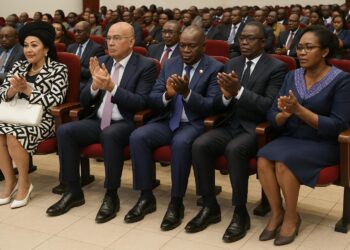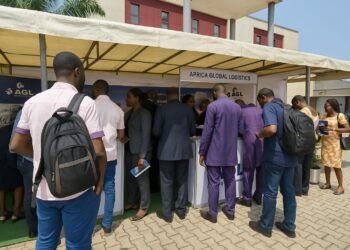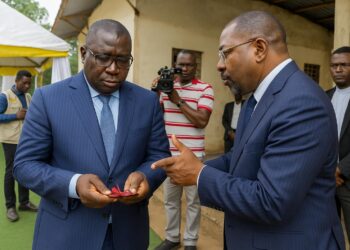Setting the Stage for Brazzaville’s Youth
The signing of a letter of engagement in Brazzaville on 11 July, linking the National Fund for Employability and Apprenticeship (Fonea), the Sino-Congolese Bank for Africa (BSCA-Bank) and the United Nations Development Programme, may at first glance seem modest: only forty internships, half reserved for young women. Yet the micro-scale of the pilot belies the symbolism it carries for a country where, according to World Bank estimates, nearly one out of three urban residents under thirty remains under-employed. The gathering—presided over by senior officials from the Ministry of Youth, UNDP Resident Representative Adama Dian Barry and Agriculture Bank of China executive Zhiheng Wang—articulated a shared ambition to convert macroeconomic growth into tangible career pathways.
A Strategic Triangular Partnership
The architecture of the agreement is deliberately triangular. Fonea provides the domestic policy anchor; UNDP offers technical stewardship and global visibility; BSCA-Bank injects private-sector pragmatism and access to financial-services know-how. Officials close to the file insist that this configuration spreads risk and maximises leverage. By embedding internships inside a coaching and mentoring framework modelled on international standards, the partners hope to replicate the success of comparable UNDP-supported schemes in Ghana and Rwanda (UNDP Youth Connekt reports).
Convergence with the Sustainable Development Goals
The initiative dovetails neatly with the Sustainable Development Goals, notably SDG 1 on poverty eradication, SDG 4 on quality education and SDG 8 on decent work. Adama Dian Barry’s remark that “a single internship can lift an entire household” reflects an evidence-based calculation: in Congo-Brazzaville the median public-sector salary supports nearly ten dependants (National Institute of Statistics, 2022). Placing forty interns therefore resonates far beyond the individuals concerned, extending a ripple of disposable income across an estimated four hundred relatives.
Private Capital Meets Public Policy
BSCA-Bank’s engagement is not purely philanthropic. Chinese commercial banks have, over the past decade, integrated environmental, social and governance metrics into overseas portfolios, partly in response to Beijing’s Belt and Road sustainability guidelines. By absorbing the costs of onboarding and supervising interns, the bank burnishes its corporate-citizenship brand while cultivating a pipeline of bilingual, financially literate graduates—a scarce resource in the Central African sub-region (African Development Bank Skills Outlook, 2023).
From a policy vantage, the Ministry of Youth leverages this corporate enthusiasm to advance President Denis Sassou Nguesso’s Priority 6—strengthening human capital—outlined in the National Development Plan 2022-2026. The arrangement therefore illustrates an incremental but discernible convergence of state objectives and market incentives.
Scaling Beyond the Pilot
The forty placements constitute the first tangible slice of the Stagi programme, which targets 10,000 internships over the current planning cycle. UNDP officials confirm that 2,440 graduates have already been screened, 400 coached and 100 matched with firms, with five securing permanent contracts. The challenge now is scale. Past donor-driven employability projects in the region have faltered once seed funding stopped; sustaining momentum will require widening the coalition to include telecoms, logistics and agribusiness players that dominate Congo’s non-oil GDP.
Fonea directorates are reportedly negotiating similar memoranda with UniCongo and the national hydrocarbons operators’ union. Should those talks mature, Brazzaville could witness a portfolio of sector-specific internship streams, each feeding into a central monitoring dashboard financed by multilateral partners. Such an ecosystem would help standardise stipends, harmonise mentorship curricula and, crucially, track post-internship absorption rates.
Diplomatic Undercurrents and Regional Optics
The ceremony also served a more subtle diplomatic purpose. By situating a Chinese majority-owned bank alongside a UN agency under the auspices of a Congolese ministry, Brazzaville projects an image of balanced multilateralism at a time when global powers vie for influence across the Gulf of Guinea. Analysts at the Institute for Security Studies note that Congo’s ability to convene such diverse partners reinforces its bargaining power in forthcoming climate-finance negotiations, where youth employment metrics increasingly condition concessional lending.
Early Signals and Measurable Benchmarks
Success, of course, will hinge on metrics. Fonea intends to publish quarterly dashboards detailing internship completion, transition to full-time roles and gender parity outcomes—an unprecedented level of transparency for a state-affiliated fund in Central Africa. BSCA-Bank has pledged to align its reporting with the Equator Principles, while UNDP will apply its global Results-Based Management framework. The first cohort is scheduled to take up posts in September, coinciding with the academic calendar and enabling a cleaner comparison between participants and peers still navigating the informal labour market.
A Cautious Yet Constructive Outlook
Even the programme’s most ardent promoters concede that internships alone cannot absorb an annual influx of over 80,000 job-seekers. Yet by coupling work placements with structured mentorship and a clear path to scale, the Stagi model incrementally addresses both demand- and supply-side frictions in Congo’s labour ecosystem. If the pilot yields the anticipated conversion rate of one permanent contract for every eight interns, Brazzaville could, within four years, transition 1,250 graduates into formal employment—an outcome that would resonate favourably with both international investors and domestic constituencies.
Against a backdrop of resilient macroeconomic indicators and renewed interest from multilateral lenders, the tripartite initiative may therefore function as a small but strategic gear in the broader machinery of Congo-Brazzaville’s development agenda.





